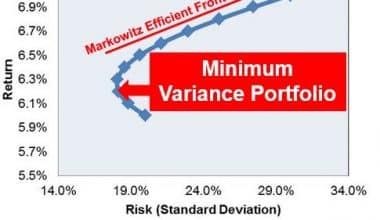An enrolled agent, also called an EA, is a tax expert who has been given permission by the federal government to help American taxpayers with issues related to the Internal Revenue Service (IRS). It is seen as the highest honor that the IRS can give, and it is legal in all 50 states.
They have the authority to speak on behalf of American taxpayers before the IRS regarding issues like audits, collections, and tax appeals.
What Does an Enrolled Agent Do?
- Federal law permits enrolled agents to represent taxpayers before the IRS.
- The enrolled agent was established as a result of false claims that were made for Civil War losses.
- They are permitted to give tax advice, act as tax representatives, and prepare tax returns and anything else that must file reports with the IRS.
- They comprise organizations like corporations, trusts, estates, and individual taxpayers.
- Moreover, tax preparation and planning are offered by enrolled agents.
- They have authorization from the Internal Revenue Service (IRS) to represent taxpayers by obtaining a passing score on a three-part IRS test covering individual and business tax returns or having worked for the IRS in the past.
Steps to Become an Enrolled Agent (EA)
Some prerequisites must be satisfied to earn the title of “enrolled agent.” The steps that must be taken to obtain the EA title are covered below.
Step 1: Create an Account on the IRS Website:
Firstly, you must register for an IRS account on the IRS website.
Step 2: Submit an IRS Application:
You must provide information like your name, address, date of birth, and any unpaid fines or taxes to submit an IRS application.
Step 3: Acquire a PTIN online:
After applying, a person will receive a Personal Tax Identification Number (PTIN) if they are not found to have any outstanding convictions or tax debts.
Step 4: Enrol in the Special Enrollment Exam (SEE):
It is advised that you enroll in a SEE course that covers the three topics covered on the SEE exam before rushing into the test.
Step 5: Undertake and Pass the SEE Exam:
When you are prepared, you must sign up for the SEE exam, which is divided into three main sections: individuals, businesses, representation, practice, and procedures.
Step 6: Gain experience with the IRS:
All people who pass the EA exam must work for the IRS for five years after they receive their certification.
Step 7: Apply for your Enrollment:
After meeting the experience requirement, you must then send in an enrollment application to finish the certification. Background checks, training, licenses, employment histories, and educational records are all required when applying for enrollment.
Step 8: Continue your education:
To keep the EA title once you have it, you must continue to meet a number of requirements. Every three years, those with EA designations must complete 72 CPE hours, using an education provider approved by the IRS, and review the enrolled agent CPE credit chart.
Is Becoming an Enrolled Agent Worth It?
The title “EA” is highly regarded. As a result, there are countless benefits of becoming one:
- Enrolled Agents have unlimited practice rights, which means they are not limited in terms of the types of taxpayers they can represent, the types of tax matters they can handle, or the IRS offices they can represent.
- Since the Enrolled Agent credential is accepted across the country, Enrolled Agents may work in any state, according to the IRS.
- You do not need a college degree to work as an enrolled agent; all you need is a high school diploma.
- To become an enrolled agent, you don’t need to be proficient in high-level maths or accounting.
- Enrolled agents who can handle more complex tax returns and represent clients before the IRS are in short supply.
- As an enrolled agent, you have a higher level of tax expertise and are unrestricted, which means you can perform more tasks for your clients, increasing your earning potential.
- You have two years from passing the first exam to pass all three portions of the three-part Enrolled Agent Exam, also known as the Special Enrollment Exam (SEE). This makes it much easier to study for and pass the exam.
Is the Enrolled Agent Exam Difficult?
Passing the EA Exam, which is also called the SEE Exam, is one of the most important things you can do to show off your skills and get the license you want. This is because EAs represent taxpayers before all levels of the IRS.
The Enrolled Agent Exam is intimidating, but with the right preparation, it’s not as difficult as people make it out to be. You will need to put in your best study effort because this is not a typical test. Here are some of the steps you need to take to properly prepare for the Enrolled Agent Exam and pass it!
- Select a top-notch EA review course
- Examine previous test questions.
- Memorise tax formats and formulas.
- Take practice exams while you’re studying.
What Does EA Mean For An Accountant?
Both Accountants and EAs are skilled, seasoned professionals who are expected to uphold the highest ethical standards. Both accountants and EAs are involved in taxation.
Accountants have everything they need to pass the qualifying exam and enroll as agents.
You will realize that both EAs and accountants are highly qualified when choosing between them. Both of them can provide you with the financial advice you may require for your taxes. Which one you should consult, however, largely depends on the problem you’re trying to solve.
What is a Certified Public Accountant (CPA)?
“Certified Public Accountant” is a title used for licensed accounting professionals. The CPA license is granted by the Board of Accountancy in each state. The American Institute of Certified Public Accountants offers resources for obtaining a license (AICPA). The CPA designation supports maintaining professional standards in the accounting industry.
The chartered accountant (CA) designation is one example of a certification that is equivalent to the CPA designation in other nations.
- A professional title given to qualified accountants is a certified public accountant (CPA).
- The Uniform CPA Exam is a demanding test that you must pass to become a CPA.
- Having a bachelor’s degree in business administration, finance, or accounting, are prerequisite for becoming a certified public accountant.
- Having two or more years of experience in public accounting is one of the other prerequisites for the CPA designation.
- In general, CPAs hold a variety of positions in corporate and public accounting as well as executive positions like Chief Financial Officer (CFO).
Enrolled Agent Salary vs CPA Salary
The average enrolled agent’s salary is between $50,000 and $65,000 per year. The typical annual salary range for a CPA is $55,800 to $80,000. CPAs typically make more money than EAs, and as time goes on, CPAs gain access to higher earning potential.
Enrolled agents do, however, have the chance to make more money during tax season.
When it comes to working settings, CPAs and EAs typically have different settings. In particular, enrolled agents frequently don’t work for a company. Since they have their clients, they can work from home with flexible hours. On the other hand, a lot of CPAs begin their careers in audit firms, but as they gain expertise, they can start their businesses and find their clients.
CPAs and EAs are on equal footing in the eyes of the IRS. Both varieties of accountants can represent clients in audits.
Is It Harder to Become an Enrolled Agent or CPA?
Many people who have taken both exams say that the CPA exam is harder to pass than the EA exam. The breadth of information covered in both exams is the cause of this.
The SEE goes into great detail on tax issues because EAs must be tax experts. The CPA Exam, however, examines four distinct areas of accountancy. Simply put, there is more information to research and learn.
In addition, the REG CPA Exam section questions are harder than the EA exam questions despite not covering tax in as much detail. This is due in part to the fact that the CPA Exam sections include both multiple-choice questions and task-based simulations.
Lastly, the EA questions are simpler because they are more in-depth but less varied and complex.
Is a CPA Better Than an Enrolled Agent?
EAs can assist you with a collection issue or an IRS audit, and they can also provide bookkeeping services that may be helpful to businesses filing tax returns.
CPAs can also help you identify tax credits and deductions to help lower your tax liability.
CPAs provide a much wider scope of tax services than Enrolled Agents, and general population demand is greater for them than for EAs.
Working with an EA might be the best option for you if you have accounting needs with a micro focus. The CPA option, on the other hand, might be the best if you’re interested in accounting procedures that have nothing to do with taxes, like auditing.
How do you determine when to use one over the other? Depending on the kind of services you require.
Comparing Enrolled Agents to Other Tax Experts
Enrolled agents, unlike CPAs who might not have a focus on taxes, must demonstrate their expertise in every area of taxes, ethics, and representation.
EAs do not work for the IRS. Additionally, they are prohibited from displaying their credentials when speaking on behalf of customers and promoting their services. They are not permitted to include the word “certified” in a title or imply a working relationship with the IRS.
Conclusion – Enrolled Agent IRS
An EA might be your best option if you need assistance with an IRS issue, such as a collection issue or an audit. The IRS is usually no problem for them, and some EAs even served as IRS agents before starting their businesses.
Furthermore, they are a fantastic choice if you require assistance with tax planning and preparation for a business or individual. While EAs can’t offer compiled, reviewed, or audited financial statements like the majority of CPAs can, they can usually handle bookkeeping tasks. convert the company’s records into tax-basis statements, which they then use to prepare a tax return.
- FAIR VALUE ACCOUNTING: Definition & Benefits of Fair Value Accounting
- PUBLIC ACCOUNTING: What is Public Accounting (+ Detailed Salary Structure)
- CPA ACCOUNTING: What is CPA Accounting? (+ Top Seven Free Online Courses)
- GARNISH WAGES LAWYER: How They Can Help You






